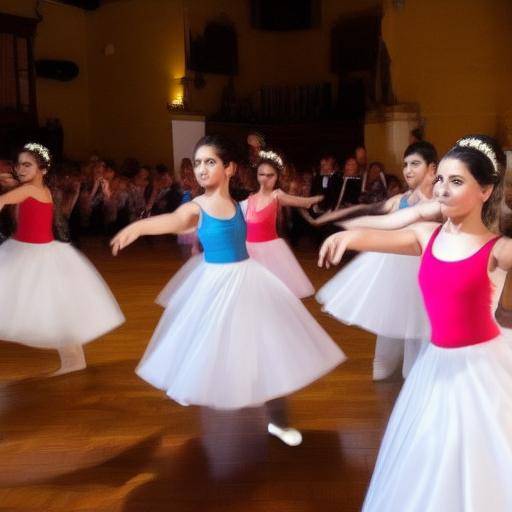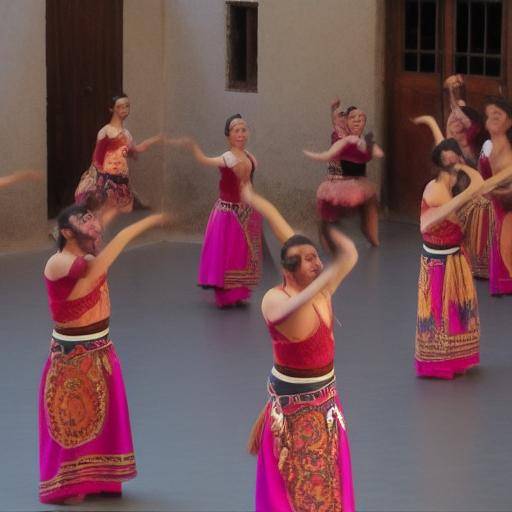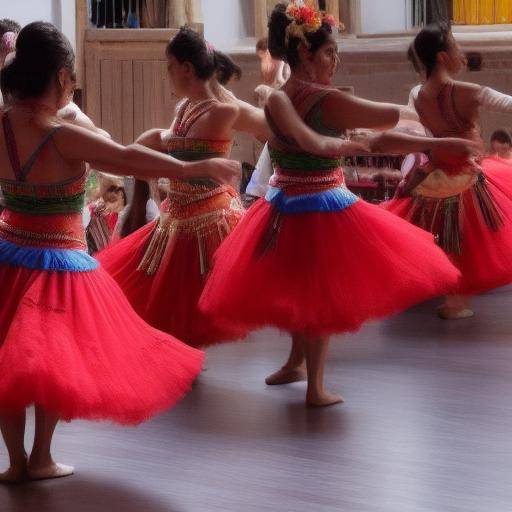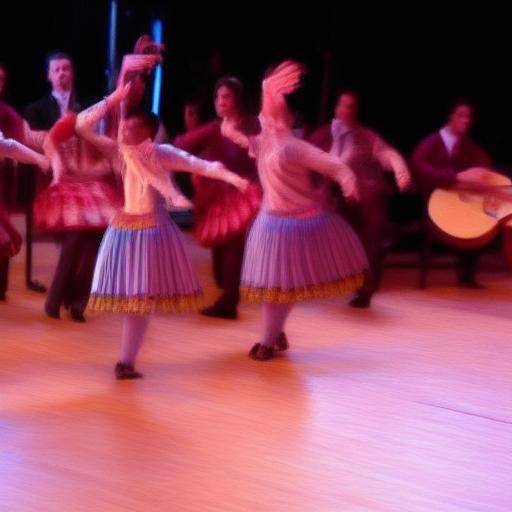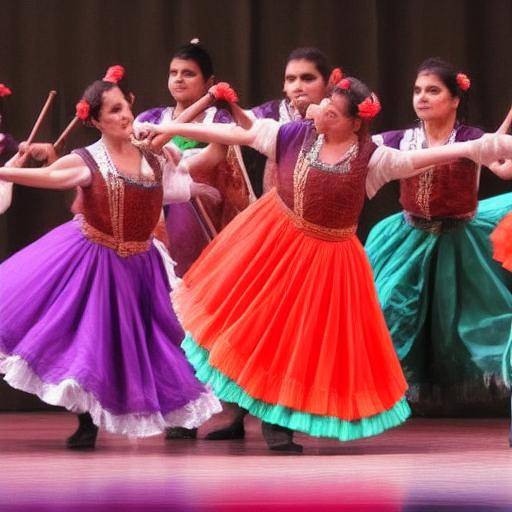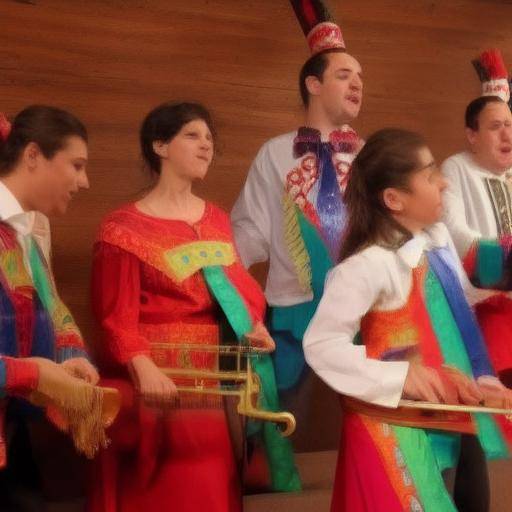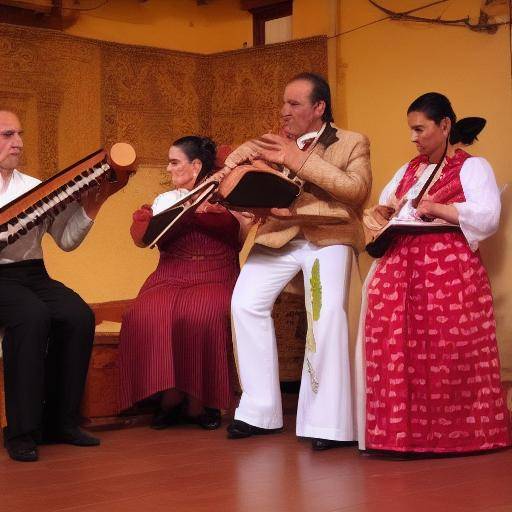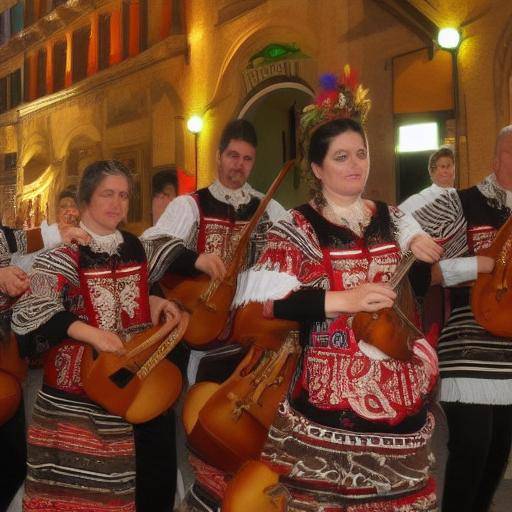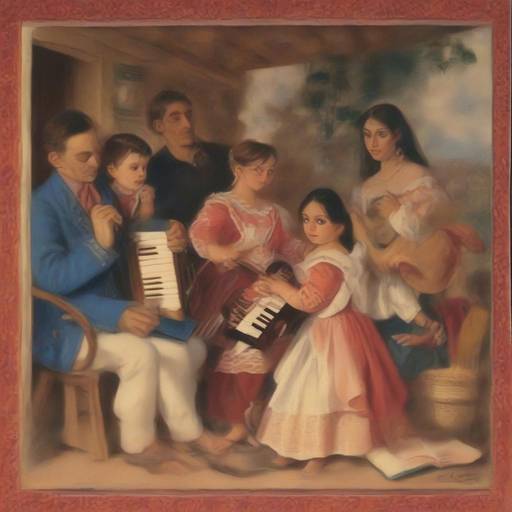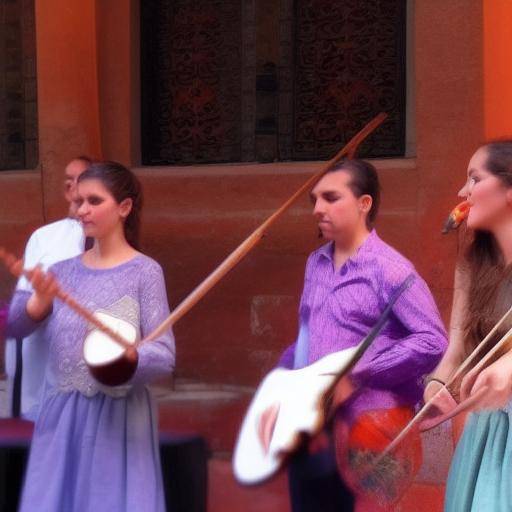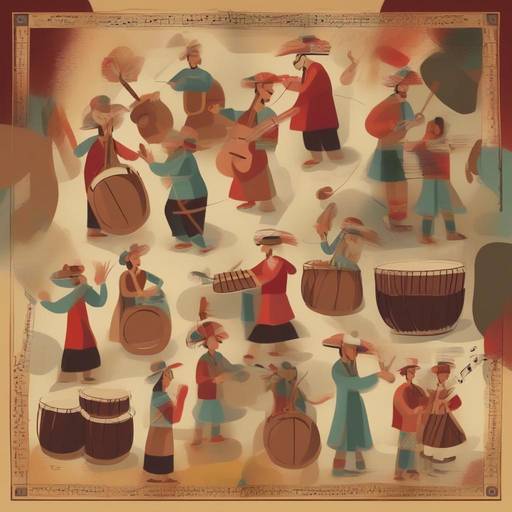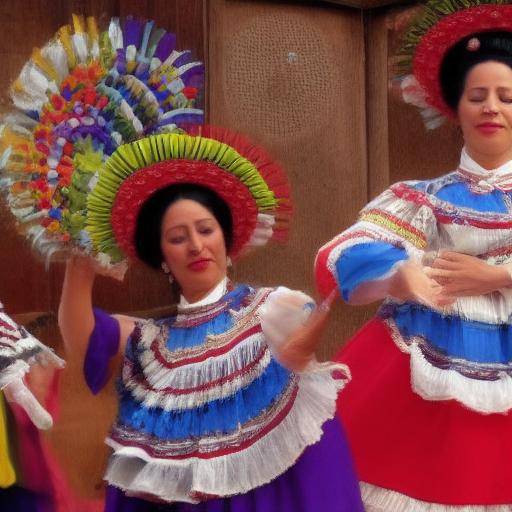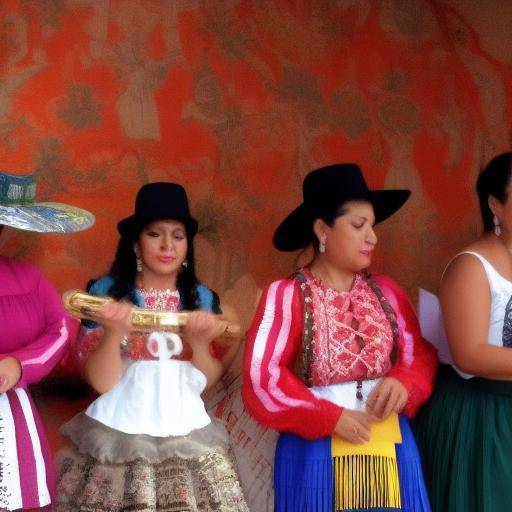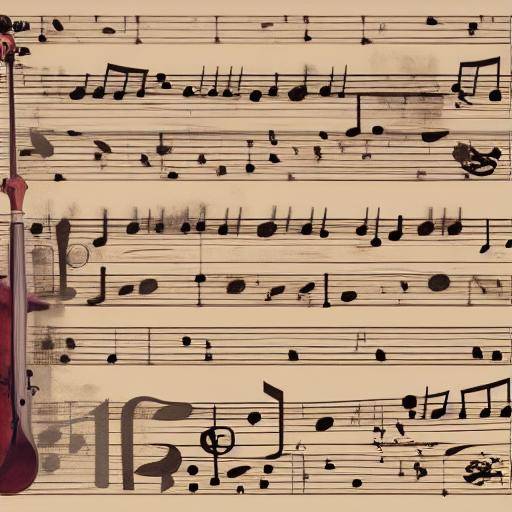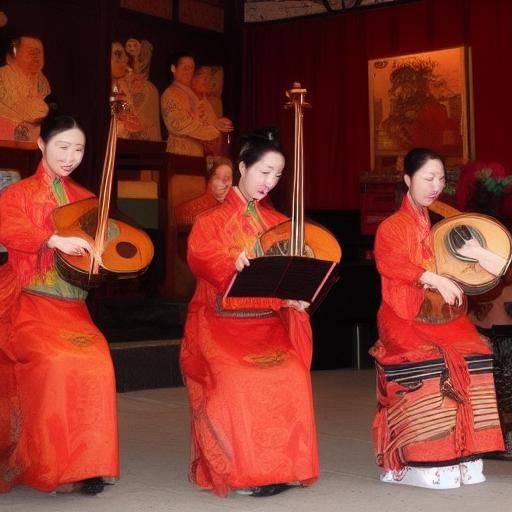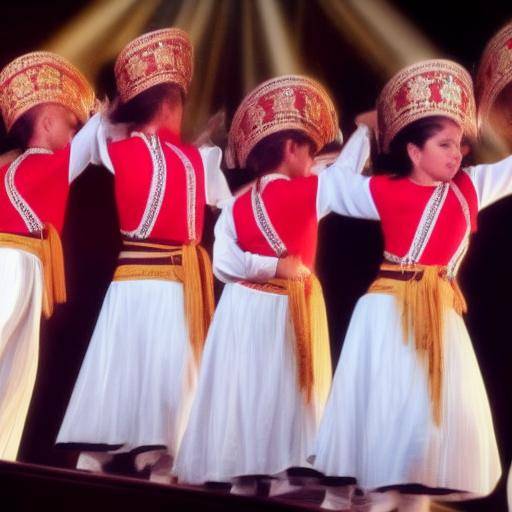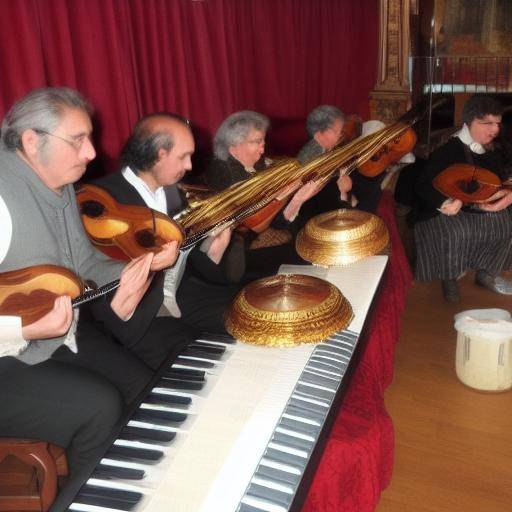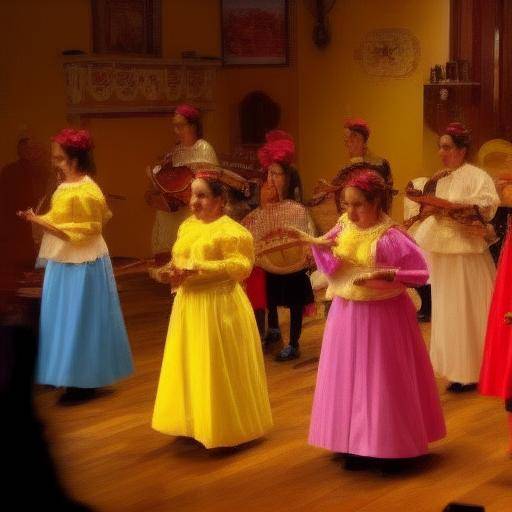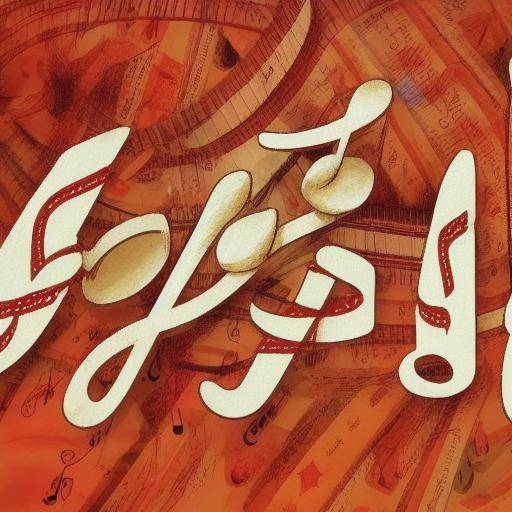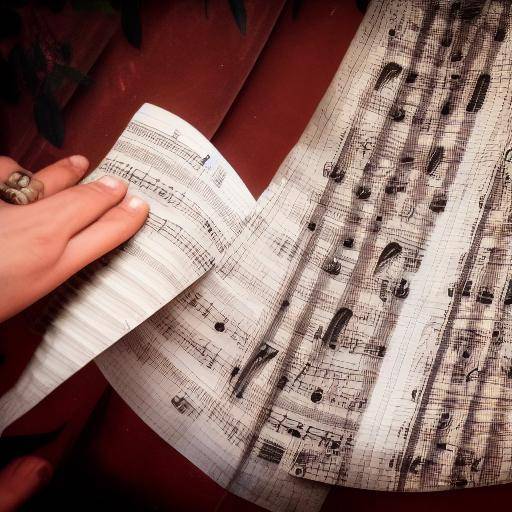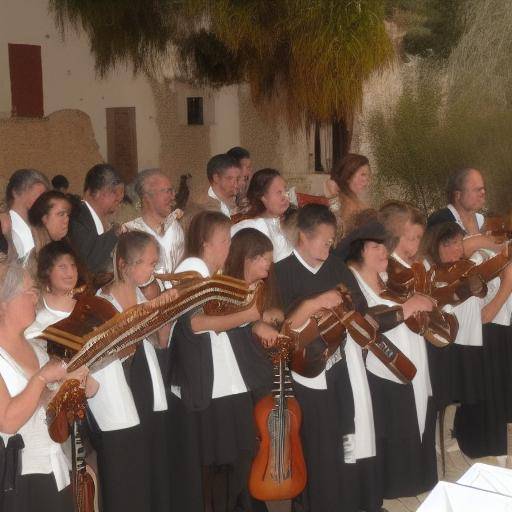
Introduction
Music is an essential element in the life of the world's cultures. In the context of the Mediterranean region, music is a vibrant manifestation that reflects cultural wealth and the diversity of traditions. In this article, we will explore the musical traditions rooted in Mediterranean culture, from its historical origins to its contemporary influence. In addition, we will analyze the interconnection between music, cultural identity and communities that have shaped this rich musical heritage.
History and Background
Mediterranean music has its roots rooted in ancient times, with influences that date back to the time of ancient civilizations such as Greek, Roman, Phoenicia and Egyptian. The Mediterranean region has historically been a crucible of cultures, and this diversity is reflected in the music that has evolved over the centuries.
The Ancient Civilizations and their Impact on Mediterranean Music
The ancient civilizations that flourished around the Mediterranean sea contributed significantly to the development of musical traditions in the region. From Greek lyric poetry accompanied by lyra to the musical influences of the Roman Empire, each civilization left an indelible mark on Mediterranean music.
The Arab and Andalusian Heritage
The arrival of the Arabs to the Iberian peninsula in the 8th century brought with it a rich musical heritage that greatly influenced Mediterranean music. The fusion of Arabic music and traditional Spanish music led to a unique form of musical expression known as Andalusian music, which remains an integral part of the musical heritage of the region.
Renaissance and Baroque: The Era of Classical Music
The Renaissance and the Baroque marked a time of splendor in Mediterranean music, with composers such as Monteverdi, Vivaldi and Corelli who left a lasting musical legacy. The Renaissance and Baroque Mediterranean music remains a source of inspiration for musicians and music lovers today.
The 20th Century and Popular Music
The 20th century brought with it a flourishing of popular music in the Mediterranean region, with genres such as flamenco in Spain, Rebétiko in Greece and popular music in Italy, which became symbols of cultural identity and artistic expression.
Analysis in Deep
Mediterranean music, despite its rich history, also faces challenges in the modern era. Globalization and digitalization have transformed the way music is created, consumed and shared. Despite these challenges, Mediterranean music remains a unique cultural treasure with a lasting impact.
Challenges and Opportunities in the Digital Era
Digitalization has expanded the scope of Mediterranean music, providing opportunities for emerging artists to reach a global audience. However, it also poses challenges in terms of the protection of musical traditions and the preservation of cultural authenticity in an increasingly interconnected world.
Influence of Mediterranean Music in Global Culture
Mediterranean music has influenced musical genres around the world, from flamenco music that has inspired international artists to the influence of Greek melodies on contemporary pop music. This global influence highlights the continued relevance of Mediterranean musical traditions in the international musical landscape.
Music as Cultural Bridge
Music has played a crucial role as a cultural bridge in the Mediterranean region, joining diverse communities through shared artistic expression. This phenomenon is evident in the fusion of traditional musical styles with contemporary elements, which has enhanced diversity and strengthened cultural ties in the region.
Exhaustive examination
Mediterranean music is not only limited to its artistic manifestations, but has also become a driving force for change and innovation in various aspects of cultural and social life. Exploring the applicability and best practices of musical traditions in Mediterranean culture can provide a deeper insight into their impact and relevance today.
Role of Music in Cultural Identity
Mediterranean music plays a central role in the formation and maintenance of the cultural identity of communities in the region. From festive celebrations to expressions of resistance, music has served as a powerful symbol of collective identity and cultural heritage.
Development of Music as Therapeutic Resources
Mediterranean music has proven to be an effective therapeutic resource in various contexts, including music therapy, stress treatment and the promotion of emotional well-being. Their ability to foster healing and personal enrichment is a testimony to the transforming power of music in everyday life.
Music and Cultural Tourism
Mediterranean music has played a crucial role in promoting cultural tourism in the region. Music festivals, live performances and authentic musical experiences have attracted travelers from around the world, contributing to the promotion of cultural diversity and intercultural exchange.
Comparative analysis
The intersection of musical traditions, Mediterranean culture and music offers a rich source of comparison and contrast that reveals the diversity and complexity of this form of artistic expression. Understanding the similarities, differences and possible synergies between these aspects allows us to fully appreciate the richness of the Mediterranean musical identity.
Similarities and Differences Between Musical Traditions
Musical traditions in Mediterranean culture share common elements, such as the use of traditional instruments, improvisation and storytelling through music. However, each region and community provides its own distinctive seal, giving rise to a variety of unique musical styles and genres.
Influence of Mediterranean Culture in Music
The influence of Mediterranean culture on music transcends geographical boundaries, which is reflected in the fusion of styles and the diversity of musical genres. From folk music to contemporary music, the cultural imprint of the Mediterranean is manifested in the richness and variety of musical expressions.
Synergies and Convergences in Mediterranean Music
The convergence of different musical traditions in the Mediterranean region has led to creative synergies that foster innovation and musical experimentation. This interaction between the various musical influences has enriched the Mediterranean musical panorama, generating a stream of dynamic and evolving creativity.
Practical Tips and Accessible Recommendations
For those interested in exploring and participating in the musical traditions of Mediterranean culture, here are some practical advice and recommendations that will facilitate greater understanding and appreciation for this form of artistic expression.
Participation in Local Music Events
Assisting traditional music festivals, live concerts and local cultural events is an excellent way to immerse yourself in the musical traditions of the Mediterranean region, interact with local artists and experience the authenticity of music in their original environment.
Exploration of Regional Musical Styles
Explore the diversity of regional musical styles, such as flamenco in Spain, the tarantella in Italy and the Rebétiko in Greece, offers a profound view of the richness and uniqueness of Mediterranean musical traditions. In addition, it can appreciate the connection between the music, history and cultural identity of each region.
Support for Local Artists
Supporting local artists by acquiring their music, attending their performances and disseminating their work helps to preserve and promote musical traditions in the Mediterranean region. This action not only supports the sustainability of local musical expressions, but also fosters cultural diversity and cultural exchange.
Industry Perspectives and Expert Reviews
Exploring the perspectives of industry and the views of experts in the field of musical traditions in Mediterranean culture offers a valuable insight into the current challenges and emerging trends that are shaping the musical landscape of the region.
Interview with a Local Musician
"We have seen a resurgence of interest in our musical traditions in the last decade. People are rediscovering the beauty of traditional Mediterranean music and its relevance in the modern era. This revitalization has generated greater appreciation for our musical roots and inspired a new generation of artists to innovate while preserving our musical heritage."
Analysis of Trends of the Musical Industry
Current trends in the Mediterranean musical industry aim at greater intercultural collaboration, experimentation with traditional and contemporary sounds, and a greater awareness of the importance of preserving authentic musical traditions in a globalized world.
Case Studies and Practical Applications
Case studies and practical applications of musical traditions in Mediterranean culture provide concrete examples of how music influences various areas of everyday life, from education to tourism and health.
The Impact of Traditional Music on Education
The integration of traditional Mediterranean music into educational programs has proven to be an effective tool to promote cultural diversity, creativity and the development of intercultural skills among students.
Music and Wellness in Health Care
The use of traditional Mediterranean music in health care settings has proven to be beneficial for emotional well-being and patient recovery. Music as a therapeutic tool has given comfort and hope to those seeking relief from adverse medical conditions.
Future Trends and Predictions
The panorama of musical traditions in Mediterranean culture is constantly evolving, and understanding emerging trends and future predictions provides an invaluable insight into the direction of music in the region.
Technological Innovation and Cultural Preservation
Technological innovation, such as virtual and increased reality, is expected to play a crucial role in preserving and disseminating Mediterranean musical traditions, providing new ways of connecting global audiences with the richness of traditional music.
Interdisciplinary collaborations and Musical Experimentation
Interdisciplinary collaborations between musicians, visual artists and technology experts will promote greater musical experimentation and the creation of immersive artistic experiences that will merge the traditional with the contemporary.
Conclusions
In short, musical traditions in Mediterranean culture represent a rich cultural heritage that has endured over time. From its ancestral roots to its influence in the modern era, Mediterranean music remains a beacon of diversity, creativity and artistic expression. By understanding and appreciating these musical traditions, we can enrich our understanding of Mediterranean culture and foster its preservation for future generations.
Frequently asked questions
What role does music play in the cultural identity of the Mediterranean region?
Music plays a key role in the formation and maintenance of cultural identity in the Mediterranean region, serving as a powerful symbol of shared heritage and local traditions.
What are some examples of traditional musical genres in Mediterranean culture?
Some examples of traditional musical genres in the Mediterranean region include flamenco in Spain, the Rebétiko in Greece, the tarantella in Italy and Andalusian music in the Magreb region.
How has Mediterranean music evolved in the modern era?
Mediterranean music has experienced significant evolution in the modern era, adapting to technological and social changes. There has been a resurgence of interest in musical traditions, as well as a further experimentation with fusions of traditional and contemporary styles.
What is the impact of Mediterranean music on the tourism industry?
Mediterranean music has had a positive impact on the tourism industry, attracting interested visitors to authentic cultural experiences, such as traditional music festivals and live performances, thus contributing to the promotion of cultural tourism in the region.
How can we support the preservation of musical traditions in Mediterranean culture?
Support for local artists, participation in traditional musical events, the dissemination of traditional music and the promotion of musical education are some ways to support the preservation of musical traditions in Mediterranean culture.
What are future trends in Mediterranean music?
Future trends in Mediterranean music are expected to include greater technological innovation for cultural preservation, interdisciplinary collaborations and greater musical experimentation that will merge the traditional with the contemporary.
In conclusion, musical traditions in Mediterranean culture represent an invaluable cultural legacy that continues to inspire, enrich and connect people through their artistic expression. In exploring and appreciating these musical traditions, we contribute to their preservation and celebrate the diversity and creativity that defines Mediterranean music.

